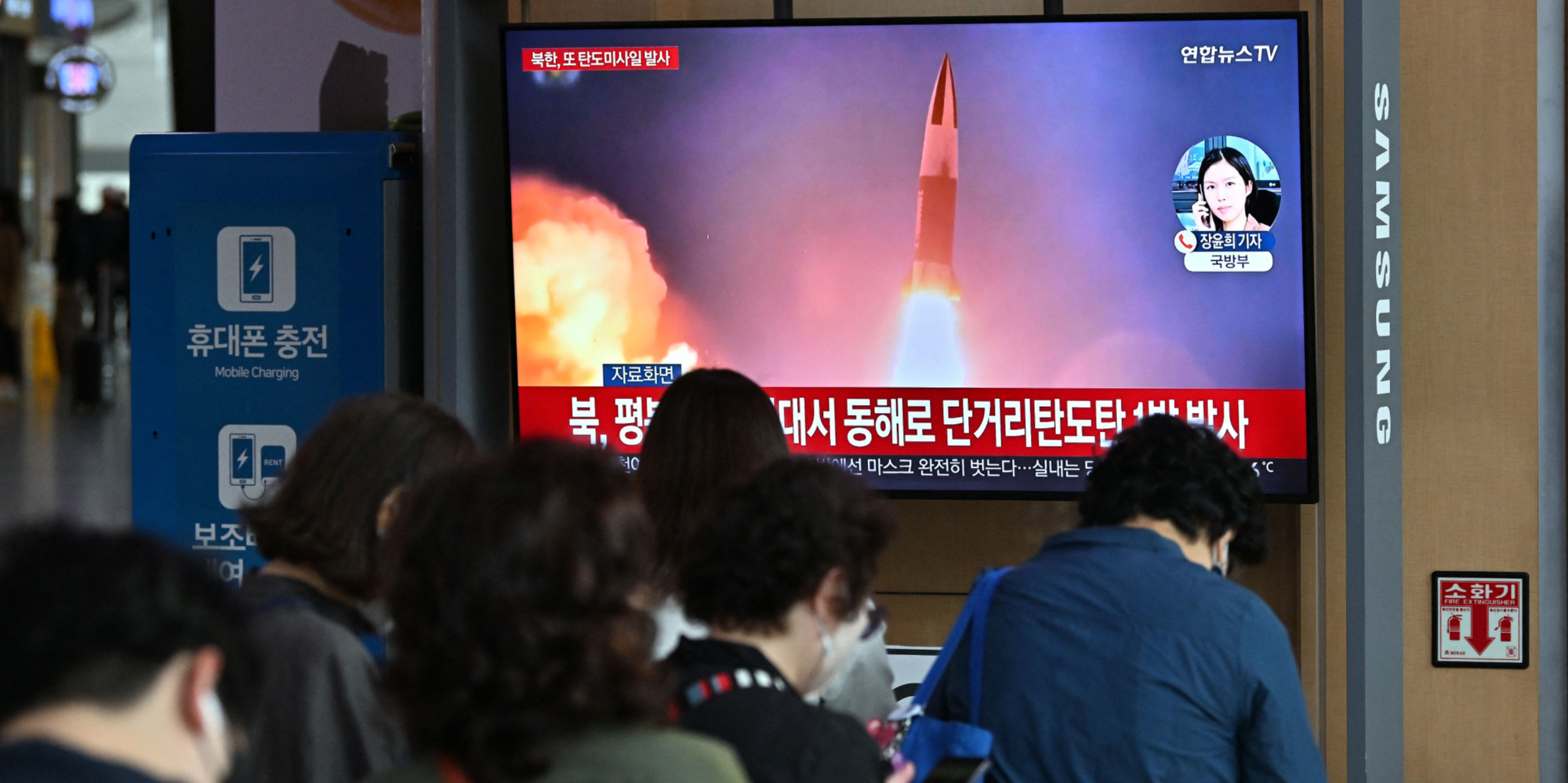Europe 1 with AFP 6:20 a.m., September 25, 2022
North Korea fired a new ballistic missile on Sunday, as a US aircraft carrier is in South Korea for drills and days before a visit to Seoul by US Vice President Kamala Harris.
The projectile crashed into the sea off the North Korean coast, apparently outside Japan's exclusive economic zone.
North Korea fired a new ballistic missile on Sunday, as a US aircraft carrier is in South Korea for drills and days before a visit to Seoul by US Vice President Kamala Harris.
North Korea has been engaged in a record series of weapons tests for several months, while negotiations with the international community on its nuclear and missile program have stalled.
Pyongyang notably launched its first intercontinental ballistic missile since 2017 in May, and adopted a new doctrine in early September proclaiming that the country will never give up atomic weapons.
The projectile traveled about 400 km
The South Korean military "detected a short-range missile launched by North Korea at 06:53 (21:53 GMT Saturday) from the vicinity of Taechon, in the Europrovince of North Pyongan, in the direction of the East Sea" (Sea of Japan), the staff said in a statement.
The Japanese Coast Guard has issued a warning to ships in the area where the missile fell.
According to Japanese Defense Minister Yasukazu Hamada, the projectile traveled about 400 km at a maximum altitude of 50 km and crashed into the sea off the North Korean coast, apparently outside Japan's exclusive economic zone.
"Japan will continue to work on strengthening its defense capabilities by exploring several options, including acquiring response capabilities," Hamada told reporters.
"Unforgivable" launches
Pyongyang's repeated launches are "absolutely unforgivable and the remarkable improvement in its missile technology is something we cannot ignore", he added.
On Friday, the US nuclear-powered aircraft carrier USS Ronald Reagan and its accompanying flotilla arrived in the major port of Busan in southern South Korea.
He must participate in the coming days in joint exercises with the South Korean army off the eastern coast of the country.
This presence responds to the will of Seoul and Washington to increase the American presence in the region.
Conservative South Korean President Yoon Suk-yeol, who took office in May, has promised to strengthen military cooperation with the United States after his predecessor's failed attempts at diplomatic rapprochement with the North.
Mr. Yoon is also due to receive US Vice President Kamala Harris in Seoul on Thursday.
Washington is Seoul's main ally
"The timing of the final test falls between the arrival of the USS Ronald Reagan this week and Vice President Harris' visit to Seoul next week," RAND analyst Soo Kim told AFP. Corporation.
"It's a way for North Korea to show its distrust of the alliance, and to talk about it at an opportune time," he said.
Washington is Seoul's main security ally, and has about 28,500 troops in South Korea.
The two countries have long conducted joint exercises.
They insist on their purely defensive character, but North Korea regards them as dress rehearsals for a future invasion of its territory.
"Pyongyang could put on a show of force while the US aircraft carrier is in South Korea," predicted Leif-Eric Easley, a professor at Ewha University in Seoul.
But according to him, "North Korea's tests are above all part of a long-term campaign to increase its offensive military capabilities."
The North Korean regime has tested atomic bombs six times since 2006
South Korean and American officials have been warning for months that North Korean leader Kim Jong Un is preparing to conduct another nuclear test.
The North Korean regime has tested atomic bombs six times since 2006. The latest and most powerful test came in 2017, with an estimated yield of 250 kilotons.
Pyongyang mentioned a hydrogen bomb.
"North Korea may delay its seventh nuclear test out of respect for China's upcoming political conference, which Xi Jinping is painstakingly preparing to expand his leadership" in late October, Easley said.
"But there are limits to Pyongyang's self-discipline," he added.

